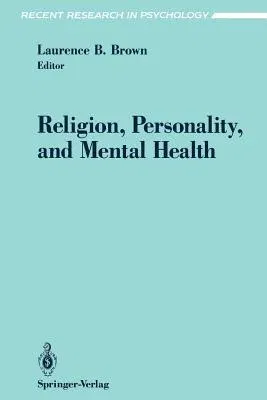Religion, Personality, and Mental Health (Softcover Reprint of the Original 1st 1994)Paperback - Softcover Reprint of the Original 1st 1994, 16 September 2011

Qty
1
Turbo
Ships in 2 - 3 days
In Stock
Free Delivery
Cash on Delivery
15 Days
Free Returns
Secure Checkout
Part of Series
Recent Research in Psychology
Print Length
217 pages
Language
English
Publisher
Springer
Date Published
16 Sep 2011
ISBN-10
1461276314
ISBN-13
9781461276319
Description
Product Details
Book Edition:
Softcover Reprint of the Original 1st 1994
Book Format:
Paperback
Country of Origin:
NL
Date Published:
16 September 2011
Dimensions:
23.39 x
15.6 x
1.24 cm
ISBN-10:
1461276314
ISBN-13:
9781461276319
Language:
English
Location:
New York, NY
Pages:
217
Publisher:
Weight:
331.12 gm

